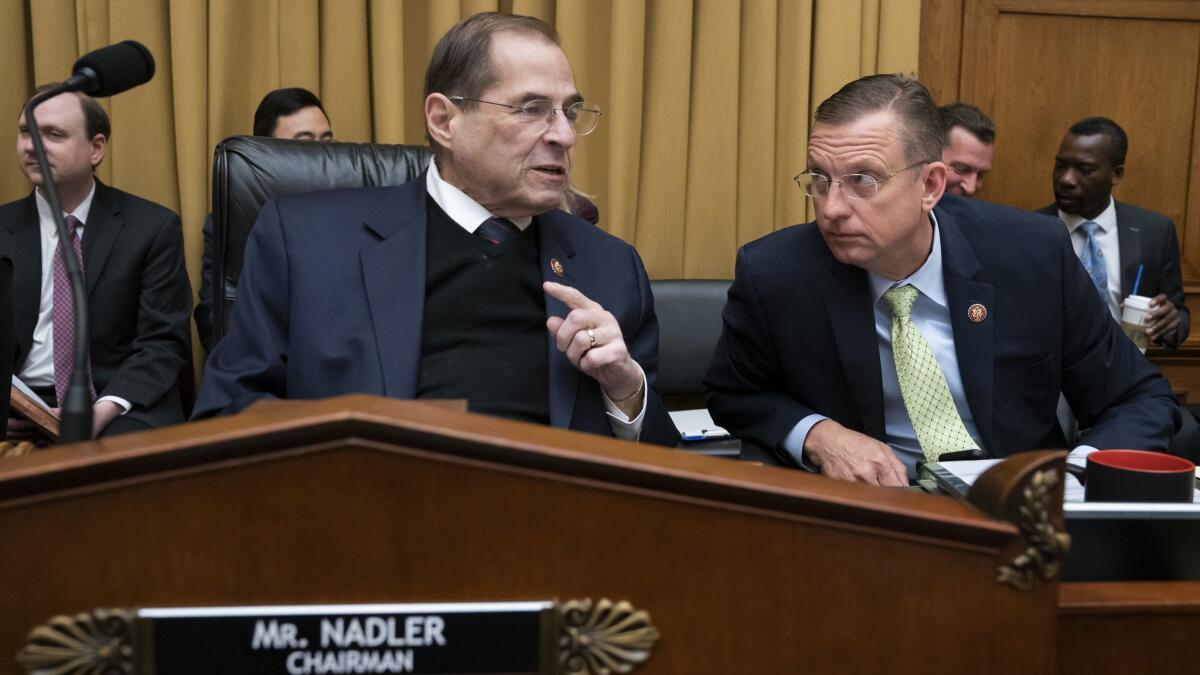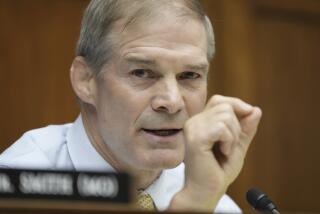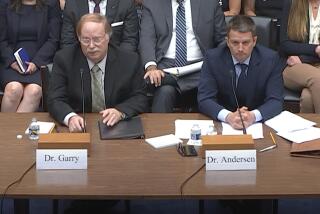Today’s impeachment hearing wasn’t actually a hearing

- Share via
Maybe I missed it, but did any member of the House Judiciary Committee show any genuine curiosity at the committee’s first impeachment hearing Wednesday?
Part of the blame rests with the witnesses, four constitutional experts from prestigious law schools. Their testimony was dramatic — the three summoned by the Democrats declared that the evidence showed that Trump indisputably committed impeachable offenses, and the one summoned on behalf of the Republicans said the process itself was a threat to democracy. But none showed a glimmer of doubt, making them seem at times more like ideologues than academics. It would have been better to have professors who were more interested in the gray areas, and who acknowledged the possible existence of other explanations for Trump’s behavior.
That sort of witness might have prompted committee members to abandon their prepared statements, put down the leading questions their staffs had prepared, and engage in a real back-and-forth with experts well versed both in the roots of the Constitution’s impeachment provision and the history of how that provision has been employed.
Or not. It’s a big committee, yet none of its members Wednesday displayed any doubt about where they were heading. As a couple of Republican members pointed out, 17 of the 24 Democrats on the committee had previously voted on the House floor in favor of an impeachment resolution (well, technically, they voted not to table it) offered by Rep. Al Green (D-Texas). So they’re not exactly impartial observers here.
Similarly, Republicans spent their time decrying the hearings and pumping their one sympathetic witness, George Washington University law professor Jonathan Turley, to agree that the Democrats were engaged in an unholy rush to take out a president they despise. Rep. Mike Johnson (R-La.), indicting himself as well as his colleagues, put it this way: “As has been highlighted so many times today, this whole production is a sham, and a reckless path to a predetermined outcome .... Let’s not pretend that anybody cares about what’s being said here today.”
Silly me, I cared! But aside from a clever rebuttal of one of Turley’s arguments by Rep. Eric Swawell (D-Calif.), the members seemed to treat the witnesses like props who were there to back up the narrative they were intent on advancing Wednesday.
Even given the limitations of the witnesses, much more good could have come from the hearing had lawmakers been legitimately curious, humbled by the responsibility before them and uncomfortable with the magnitude of the decision they must make. Had that been the case, they would have pushed back against the experts.
Democrats would have asked Turley what sort of evidence he would need to see before believing Trump had improperly solicited Ukraine’s help in his reelection bid, and what the House should do in the face of the complete and unrelenting obstruction from the White House. It’s one thing to complain about the lack of evidence from the people in the best position to know what happened, but when those people simply refuse to testify, should the House just say, “All right, never mind”?
And Republicans would have asked the three professors summoned by the Democrats — Noah Feldman of the University of North Carolina, Pamela S. Karlan of Stanford and Michael Gerhardt of Harvard — on what basis they concluded that Trump committed impeachable offenses, and why they dismissed the many defenses Trump’s supporters had offered.
That would have been an actual hearing, not an exchange of lectures. The result might have been the same for members of the committee, but different for members of the public.
More to Read
A cure for the common opinion
Get thought-provoking perspectives with our weekly newsletter.
You may occasionally receive promotional content from the Los Angeles Times.










